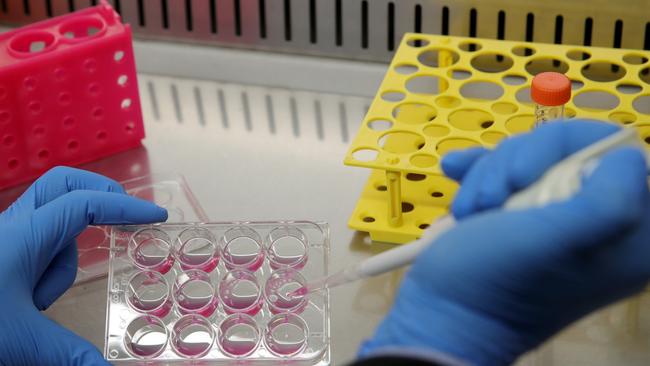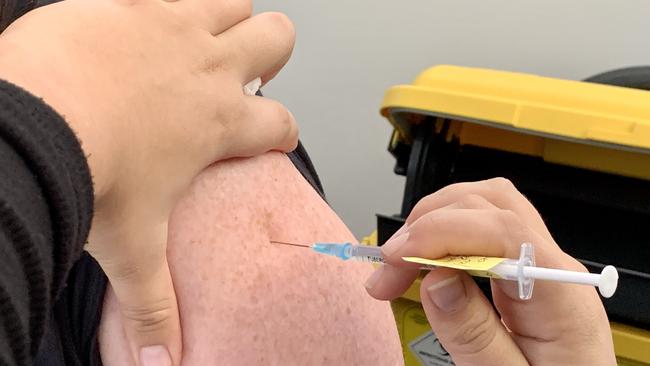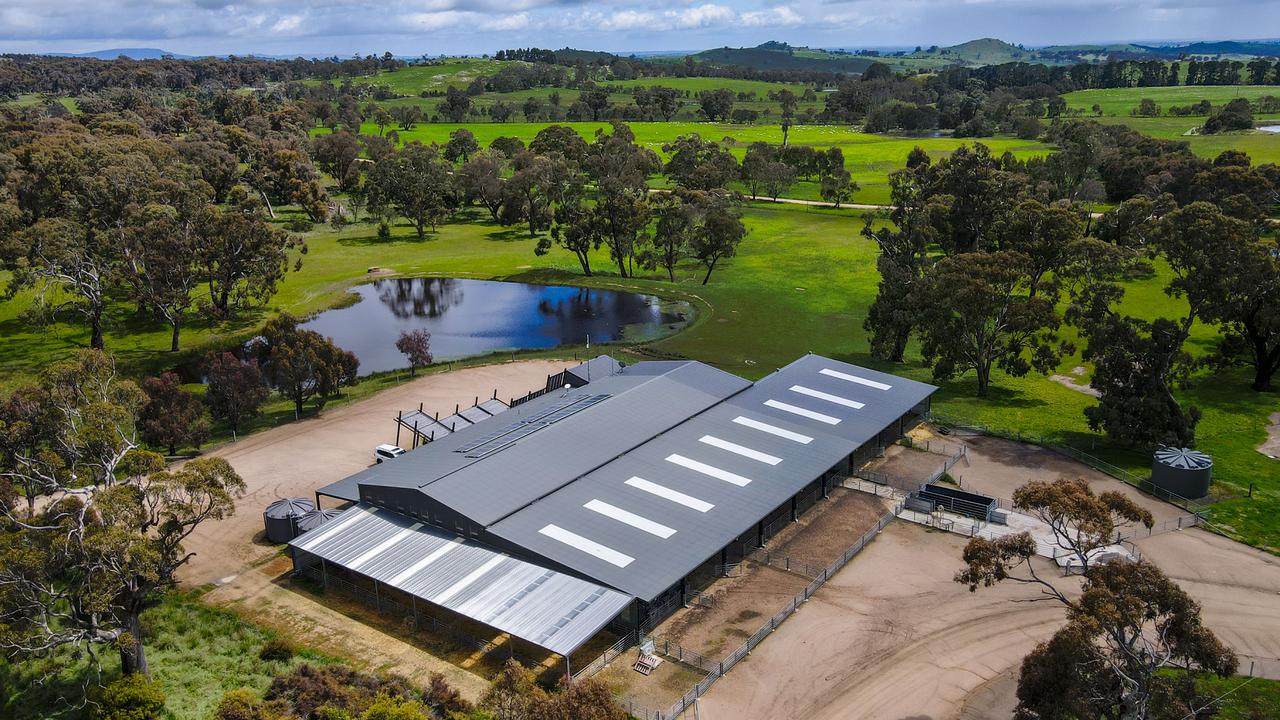A spray for next generation of Covid vaccines
Two Melbourne-made Covid vaccines are now ready for commercial partnerships to help bring them to market, with hope that one can be delivered as a nasal spray.
Victoria
Don't miss out on the headlines from Victoria. Followed categories will be added to My News.
The first human trial of two Melbourne-made Covid vaccines confirm they are safe, they work and are ready for commercial partnerships to help bring them to market.
In a world first, the Melbourne research teams behind the vaccines worked together to evaluate the vaccines in animal experiments, and then did the trial together and found both were successful at boosting immunity against even the most recent SARS-CoV-2 variants.
The teams are from the Peter Doherty Institute for Infection and Immunity (Doherty Institute) and the Monash Institute of Pharmaceutical Sciences (MIPS).

Both of the next generation vaccines are novel in the way they tackle the virus, focusing on just the tip of the protein spike called the receptor binding domain (RBD) rather than the whole spike. The protein spike is what allows a virus to penetrate host cells and cause the Covid infection.
Where they differ is that the MIPS team, led by Colin Pouton, will deliver a multi-variant mRNA vaccine to predict and protect against future variants of the virus.
The Doherty team, jointly led by vaccine specialist Terry Nolan and immunologist Dale Godfrey, has developed an RBD protein vaccine that the team hopes can become one of the first in the world to be delivered as a nasal spray rather than as an injection.
University of Melbourne Professor Nolan says injected vaccines are not great at preventing transmission of virus from an infected person, but that a spray into the nose could develop a more effective local antibody response and reduce infection of others.
“The vaccines are designed to give rise to antibodies against the RBD and what that means is that it should work at a quarter of the dose of whole spike vaccines. That’s very important because going forward we want to be able to give vaccines for several variants at once,” Professor Pouton said.
“As far as I am concerned the RBD vaccines that we are working on are the way to go. These vaccines work,” Professor Pouton said.

Professor Nolan said the RBD method also gives a cleaner immune response.
“If the immune system is being asked to look at a whole lot of targets and produce antibodies … it could be distracting and gives what is called an imprinted response,” he said.
“Basically if you confuse the immune system by giving it too much to look at, it loses sight of what the important bits are so you may get a paradoxically diminished response.”
The trial involved 76 healthy, previously vaccinated Melbourne adults aged between 18 to 64 years who were randomly given a fourth dose of either the Doherty’s novel protein vaccine, Monash’s mRNA vaccine or a placebo without knowing which they had received.
“The results have to be seen in context,” Professor Nolan said. “It is not a miracle cure, but it does have significant implications, especially for Australia.”
He said this included being able to produce and then trial vaccines in rapid time.
The results were published in the Lancet journal eBioMedicine.
Professor Nolan said learnings from this trial will have implications for all vaccine manufacturers.
“In all of the existing (Covid) vaccines, antibody declines fairly rapidly within three to six months, which is why boosting, irrespective of the variants, has to be a reality for the future,” he said.
Professor Pouton said Covid remained a pandemic that was still outpacing vaccines.
“But we are in a very different position now. Existing vaccines don’t prevent people from getting infections, but they do stop you from becoming seriously ill. So it is very important for people to still get existing vaccines.”
More Coverage
Originally published as A spray for next generation of Covid vaccines





